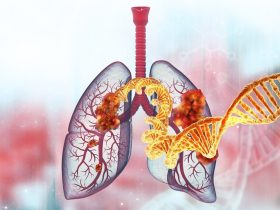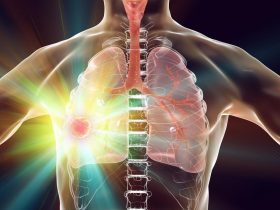ARID1A is a key component of the SWI/SNF chromatin remodeling complexes which is important for the maintaining of biological processes of cells. Recent studies had uncovered the potential role of ARID1A alterations or expression loss in the therapeutic sensitivity of cancers, but the studies in this field requires to be further summarized and discussed. Therefore, we proposed a series of mechanisms related to the resistance to EGFR-TKIs induced by ARID1A alterations or expression loss and the potential therapeutic strategies to overcome the resistance based on published studies. It suggested that ARID1A alterations or expression loss might be the regulators in PI3K/Akt, JAK/STAT and NF-κB signaling pathways which are strongly associated with the resistance to EGFR-TKIs in NSCLC patients harboring sensitive EGFR mutations. Besides, ARID1A alterations or expression loss could lead to the resistance to EGFR-TKIs via a variety of processes during the tumorigenesis and development of cancers, including epithelial to mesenchymal transition, angiogenesis and the inhibition of apoptosis. Based on the potential mechanisms related to ARID1A, we summarized that the small molecular inhibitors targeting ARID1A or PI3K/Akt pathway, the anti-angiogenic therapy and immune checkpoint inhibitors could be used for the supplementary treatment for EGFR-TKIs among NSCLC patients harboring the concomitant alterations of sensitive EGFR mutations and ARID1A.







Leave a Reply